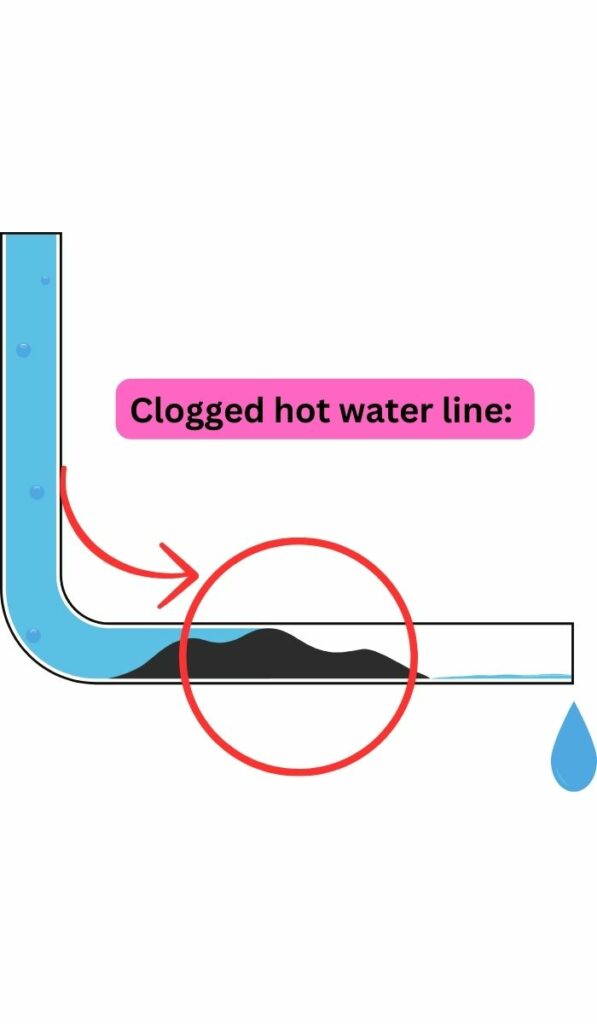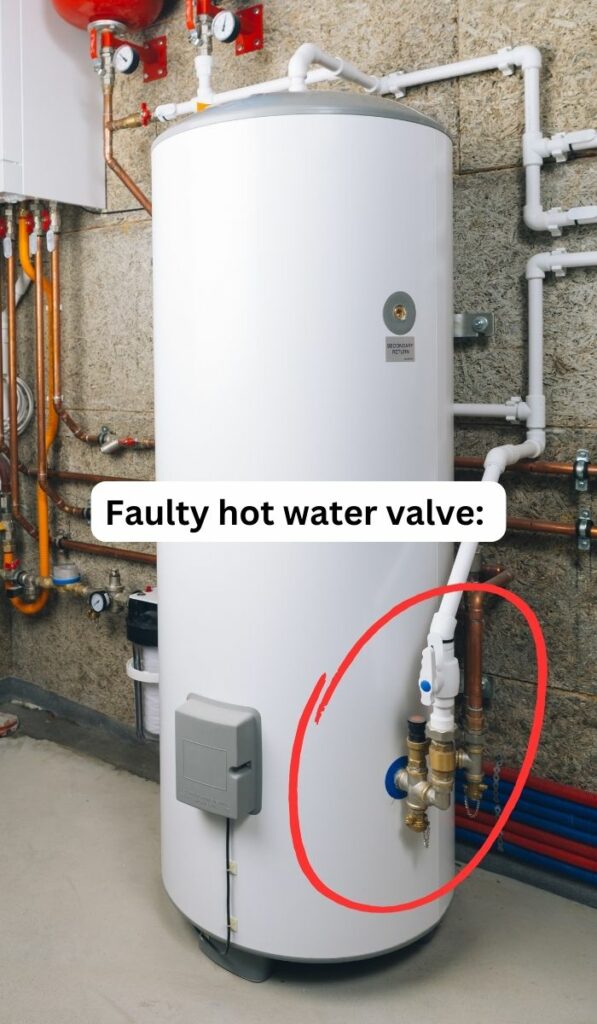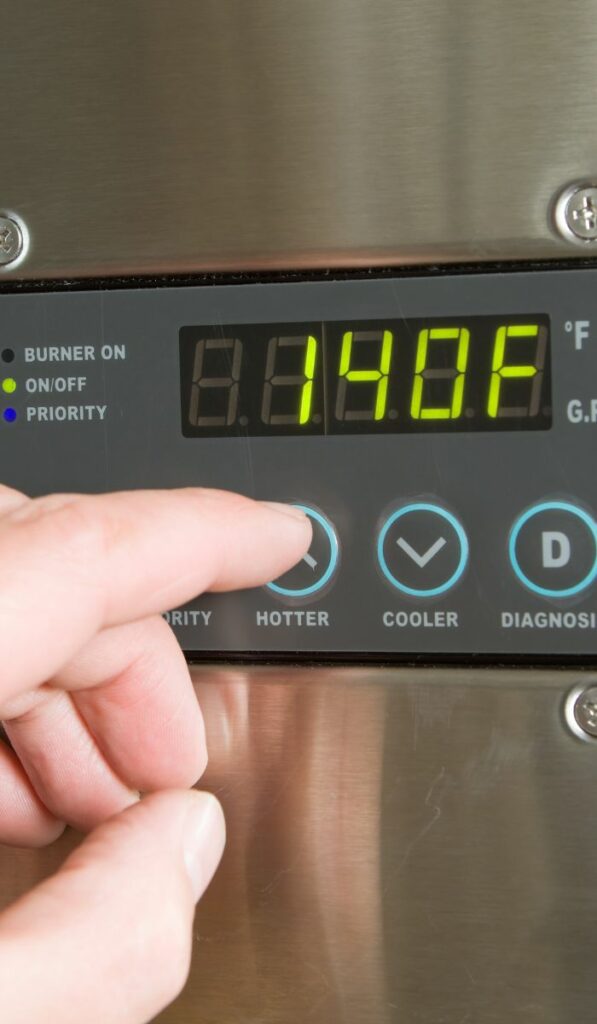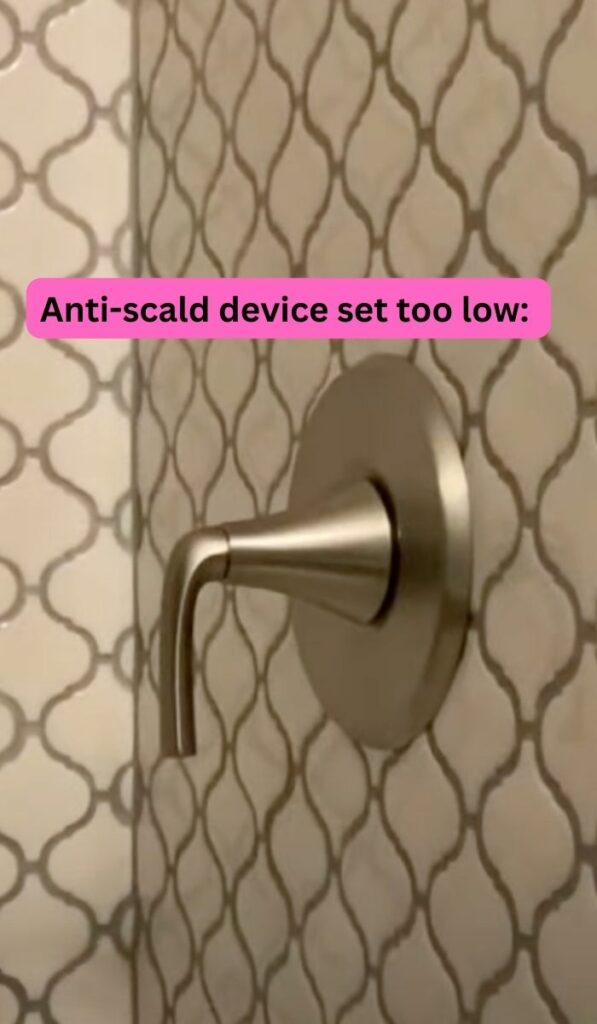If you’re experiencing hot water in some faucets but not others, it can be a frustrating and inconvenient problem. There are a few possible causes for this issue, as well as a few troubleshooting steps and solutions that you can try.
Common causes of hot water in some faucets but not others
There are a few common causes of hot water in some faucets but not others, including:
Clogged hot water line:
If the hot water line to a particular faucet is clogged, it will not be able to receive hot water. This can happen due to mineral deposits, sediment, or debris.

Faulty hot water valve:
If the hot water valve to a particular faucet is faulty, it may not be able to open fully, or it may not be able to close fully. This can prevent hot water from flowing to the faucet.

Faulty hot water heater:
If the hot water heater is not working properly, it may not be able to produce enough hot water to supply all of the faucets in the house.
Incorrectly set water heater temperature:
If the water heater temperature is set too low, the water may not be hot enough to reach all of the faucets in the house, especially those that are located further away from the water heater.

Anti-scald device set too low:
If the anti-scald device on a particular faucet is set too low, it may not allow hot enough water to flow through the faucet.

How to Fix Hot Water in Some Faucets But Not Others
If you have identified the cause of the problem, you can try to fix it yourself. Here are some solutions for the most common causes of hot water in some faucets but not others:
Clogged hot water line:
To clear a clogged hot water line, you can try using a plunger or a drain snake. If the line is still clogged, you may need to call a plumber to have it cleaned.
Faulty hot water valve:
To replace a faulty hot water valve, simply unscrew the old valve and screw on the new valve. Be sure to use a pipe wrench to tighten the connections.
Faulty hot water heater:
If the hot water heater is not working properly, you will need to call a plumber to have it repaired or replaced.
Incorrectly set water heater temperature:
To increase the water heater temperature setting, simply turn the thermostat up. Be sure to follow the manufacturer’s instructions when changing the water heater temperature setting.
Anti-scald device set too low:
To adjust the anti-scald device, simply turn the screw counterclockwise. Be sure to follow the manufacturer’s instructions when adjusting the anti-scald device.
What Could Cause Different Faucets to Have Hot Water While Others Don’t?
Different faucets may have varying hot water availability due to several factors. One possible issue could be outside faucet leaks. If these leaks occur, it can result in reduced hot water flow to certain faucets inside. To resolve this problem, it is crucial to learn how to fix outside faucet leaks promptly and effectively. This will ensure a consistent supply of hot water to all faucets in the house.
People Also Ask
Yes, in most cases you can adjust the temperature of the water in your faucets by adjusting the hot water mixing valve. This valve is typically located near your hot water heater and controls the ratio of hot and cold water that is mixed together. If you’re not comfortable making this adjustment yourself, it’s best to call a plumber to do it for you.
Yes, hard water can affect the temperature of the water in your faucets by causing mineral buildup in your plumbing system. This buildup can restrict the flow of hot water to your faucets, resulting in cooler water. If you suspect that hard water is the problem, it’s important to have your plumbing system inspected and treated by a professional.
Yes, it’s normal for the water temperature to vary between different faucets in your home, especially if they are located in different areas of the house. However, if you notice a significant difference in temperature between faucets that are located close together, it could be a sign of a problem with your plumbing system that should be addressed by a professional plumber.

Leave a Reply